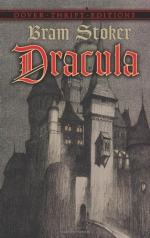|
This section contains 7,132 words (approx. 24 pages at 300 words per page) |

|
SOURCE: Leatherdale, Clive. “Social and Political Commentary.” In Dracula: The Novel & The Legend, A Study of Bram Stoker's Gothic Masterpiece, pp. 206-22. Willingborough, Northamptonshire, England: The Aquarian Press, 1985.
In the following essay, Leatherdale considers Dracula as a valuable piece of social and political commentary, maintaining that the novel mirrors “the ideological strains and tensions that afflicted the Britain of Stoker's middle years.”
From the bourgeois point of view, Dracula is … a manic individualist; from his own point of view … he is the bearer of the promise of true union, union which transcends death. From the bourgeois point of view, Dracula stands for sexual perversion and sadism; but we also know that what his victims experience at the moment of consummation is joy, unhealthy perhaps but of a power unknown in conventional relationships. Dracula exists and exerts power through right immemorial; Van Helsing and his associates defeat him in...
|
This section contains 7,132 words (approx. 24 pages at 300 words per page) |

|


